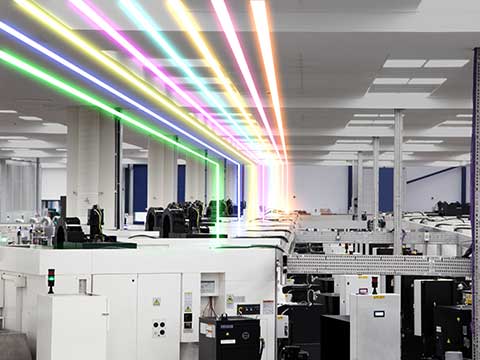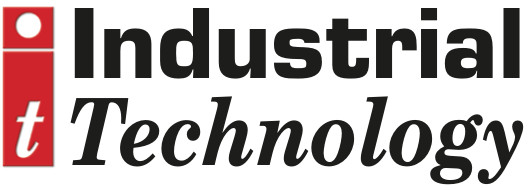
Posted to News on 23rd Feb 2024, 15:30
The changing face of metrology
Paul Maxted, director of industrial metrology applications at Renishaw, explores the changing role of metrology in manufacturing over the last few decades and predicts how it is set to develop in the future.

(See Renishaw at MachineBuilding.Live, 2 October 2024, on stand 71)
Metrology has always been vital in precision manufacturing to ensure products meet both quality and design specifications. As industry demands have increased over the years, we have seen a transformation in measurement technology advances in metrology and improvements to manufacturing capability typically go hand-in-hand.
Renishaw has always understood the role of metrology in optimising manufacturing processes. Indeed, the company was founded on exactly that, when Sir David McMurtry developed the first touch-trigger probe to solve a dimensional measurement issue for the Olympus engines which powered Concorde.
The creation of this industry-changing sensor enabled measurement on a co-ordinate measuring machine (CMM) to be automated for the first time. Since the company was founded in 1973, there has been a revolution in measurement processes let's take a look back.
Bringing metrology to the shopfloor
Processes in a traditional machine shop have always been reliant on skilled individuals toolmakers, setter/operators and other experts, producing quality machined parts in batches. In CNC machining operations the setup of a recurring batch of parts requires skilled input and often results in balancing a batch quantity with an excessively long set time. This not only ties up valuable machine time but adds inventory costs to a business.
It was and is still common for a manufacturing facility to have a dedicated CMM room and skilled inspection staff. CMM rooms are often remote from the shop floor where parts can be measured in a temperature-controlled environment. Separating machining and metrology ensures measurement traceability, however, it creates a disconnect between manufacturing and quality.
CMM measurement is often a bottleneck that delays production, with CNC operators often waiting to get first-off approval before producing parts in volume. However, the alternative of immediately starting production increases the risk of non-conforming parts, waste and quality costs which quickly escalate a dilemma.
Implementing on-machine probing and tool setting systems to automate and reduce setup times allow for smaller batch quantities and increased productivity. Further evolutions in shop floor measurement and gauging equipment mean that metrology systems empower production people to measure accurately in-line or near-line production. Ultimately, bringing metrology to the shop floor enables faster, more frequent part and process measurement and the ability to react more rapidly to process drift and dimensional changes.
Over the years, Renishaw has helped hundreds of global customers integrate metrology and proactively apply controls using its Productive Process Pyramid concept, supporting them through four core steps:
The Process foundation requires engineers to consider how they set up the entire factory for consistent performance, including CNC machine assessment, control of tooling, fixtures and other critical sources of variation.
Next, manufacturers can look at process setting, checking the machine, tooling, material and fixtures before machining integrating metrology to automate and eliminate manual intervention.
Adding probing within a CNC operation, in-process controls automatically react to any real-time changes, for example temperature variations, tool wear and process drift, again, avoiding expert intervention and adjustment.
Following machining, measuring at the post-process stage enables engineers to validate the process step or final part. However, if manufacturers have already taken the previous preventative, predictive and active steps to improve process control, quality confidence is already high.
Data-driven manufacturing
To derive the full value of metrology, manufacturers require a great deal of process data to be collected, as well as the ability to leverage the measurement results. With the right tools, manufacturers can use this data to gain valuable insights into the entire process chain, finding where they can make changes that will be most impactful to process control, quality and productivity.
Organising manufacturing data to provide valuable insights at each of these stages has traditionally been difficult on the shop floor. However, the introduction of Renishaw Central a manufacturing data and machine shop connectivity platform, is a gamechanger. With this system we can digitalise all process and metrology data, visualise, and automatically control all manufacturing and measurement processes.
The results can be significant Renishaw Central, piloted in the company's own machine shops allowed it to reduce unplanned automation stoppages and increase machining capacity by 79 hours per week. Renishaw was also able to reduce CNC setting times by over 80% when it was applied with the company's Equator gauging system and IPC (Intelligent process control) software.
Manufacturers are now able to use real-time process and measurement data to improve operations part-by-part, batch-by-batch, and drive long-term improvement, with a smart factory approach to analysing process data. Monitoring patterns in process data over time enables engineers to continuously improve and optimise. This could mean enhanced product performance, more robust process design or making products faster at lower cost.
In factories today, there are still occasions where we experience minor, frustrating stoppages, process alarms or events that impact productivity. However, as we gain more visibility of our processes, over time, we can adapt and continuously improve them. As we begin to understand our longer-term manufacturing capability, we can make informed decisions to refine the frequency for measurements and controls.
Looking forward
As manufacturing becomes more autonomous, we see a trend towards metrology being directly integrated into all automated CNC machining systems. With this approach, manufacturers can leave machines running unmanned making good parts, safely, improving productivity, and freeing up engineers for more proactive value-added activities.
Fully automated systems become critical as manufacturing looks to reshore operations. To enable manufacturers to become more globally cost competitive and ensure a resilient, local supply chain, it will be vital to manage these operations using automated metrology systems that collect real-time data.
There has been a huge shift in measurement technology in the last 50 years, taking metrology from an off-line inspection process into a fundamental pillar of high-precision, automated manufacturing. It has been a privilege to work alongside so many passionate engineers and manufacturing customers over the last few decades. They have helped to drive this change and transformed the performance and quality of products globally including cars, jet engines, mobile phones and anything precision moulded or machined. All these products are influenced by Renishaw technology at some point during their manufacture.







